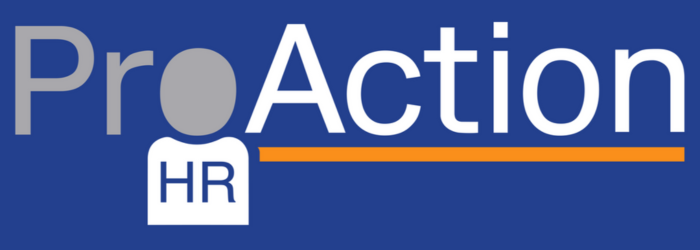Why do we continue to say yes when we should say no?
Many people work so hard for their organisations, and find themselves working long hours, and for whatever reason are not so keen to say no! It may be because they’re a people pleaser, or they work for a demanding boss, or they feel they will be judged if they don’t.
So, they find themselves working long hours and saying yes to more work without the time and headspace to deliver it.
All of this is subjective and will of course depend on your personality, individual attitude to work, relationship with your manager and co-workers and even the culture of your company or the industry in which you work.
ProAction HR has recently run our latest Management Development Programme which covers a range of topics including the holy grail of time management.
One of our coaches, Joanne Hobbins, summarises: “It was so heartening to be able to work with so many bright and enthusiastic individuals. One thing that struck me though, was how busy the individuals were at work. These are individuals who don’t normally give themselves the gift of time to stop and process. Time seems such a luxury these days. No matter what we do, whether work or pleasure, there is a common theme of “I don’t have enough time”.
How do we get our time management back on track?
We don’t have the luxury of a pause button (if only) so we take a look at the Time Management Quadrant, defined by American educator, author, businessman, and keynote speaker, Stephen Covey, which can help us focus on what is important over what is urgent.
If we were to write down everything that we are due to deliver tomorrow and put it in a matrix deciding what is important/not important and urgent/not urgent, it helps ascertain your priorities.
We do not have a choice but react to what is both urgent and important, however, spend too much of your time on these tasks, and it won’t be long before you reach burn out. Spend too much time on non-urgent / non important tasks, and you must ask yourself what you are avoiding and are you delivering on your objectives.
What you want to be doing is aiming to spend most of your time on important and non-urgent tasks, as these are the ones that help you achieve your objectives and goals. If you don’t have much time, at least spend the majority of it yielding results that matter most.
What steps can you take to make a change?
There are many models, hints, tips, strategies, Ted talks, podcasts, and approaches you can learn to help you manage your time. The biggest gift you can give yourself today, is just some time to make note of it, and become more aware.
Are you actually spending time on what you choose to, or are you simply a ball in a pin ball machine reacting to all of the demands placed on you, without thought?
Or are you consistently mindful of what you spend your time on, and choosing how you spend your day?
Admittedly, we do not always have the power to determine all the decisions, but working with managers on priorities, being clear on your objectives, understanding your fit in the overall deliverables required by you, your team, your manager, and the overall organisation will help you steer your decision.
The ProAction HR team love problems that exist – across teams, organisations, and industries. Such problems are dear to us because we have experience addressing these problems on multiple occasions using various tools. This helps us quickly resolve challenges for our clients.
One such problem, that is prevalent everywhere, and is a huge time drain is ineffective meetings. And as with any prevalent problem there are multiple solutions to address the issue. One of the most efficient solutions is called ‘the 5Ps for the meeting’. We especially like this solution because it is easy to implement.
Apply the 5 P’s to avoid wasting precious time
The 5Ps are Purpose, Participants, Process, Payoff and Preparation (some suggest it should be 6Ps including Pizza!).
Purpose:
Every meeting should have a purpose and it must define more than just a subject line calling for a ‘daily meeting’ – consider what that regular call on your time needs to achieve!
Participants:
Listing the participants makes the invitee think about who they are inviting and why they are inviting them. The invitee doesn’t have to list the name in the body of the invite, but nevertheless should make a conscious decision about who are part of the meeting.
Process:
How are you going to run the meeting? What is the agenda and what is the time per agenda item? This is key, because this is where the meeting organiser thinks about the time that they need for the meeting. This helps you avoid setting meetings in 30-minute chunks just because that is the calendar default.
Payoff:
What do you want to accomplish by the end of the meeting and to set timescales afterwards. This should be specific so that the meeting participants and the organiser can be held accountable for agreed actions and tasks.
Preparation:
What preparation is needed from the participants ahead of the meeting as this helps you to revisit the payoff and the list of people that should attend.)
Joanne says, “Ensuring every meeting invite has the 5Ps listed is in my opinion the best preparation anyone can do to organise one. It’s also one of the easiest ways to manage your time more effectively and have more effective meetings.”
Here are a few tips to gift yourself some time!
Book out an hour or two to process, to stop and think about yourself, and how you spend your time.
Apply the 5P’s to the next meeting you receive – and give yourself the gift of saying no a meeting that you don’t really need to attend (if it’s’ in your power to do so).
And perhaps what you could also do is gift yourself some training to work smarter not harder as it’s a real mind shift for many to make efficient time management a permanent habit.
Management Development
Our Management Development Programme focuses on you as a manager and how to manage your time. It also explores many other elements to ensure you can hone or enhance your management skills. These include where you are today, your style, how you can be a better leader, your personality type, and where you want to go on your career journey.
Once you have looked at these elements, we help you look at how you can make enhancements to manage your team by using management styles, feedback, coaching, and a look at wellbeing. There is so much you can do to help yourself manage your time to perform better, and ultimately deliver more without working all the hours under the sun.



